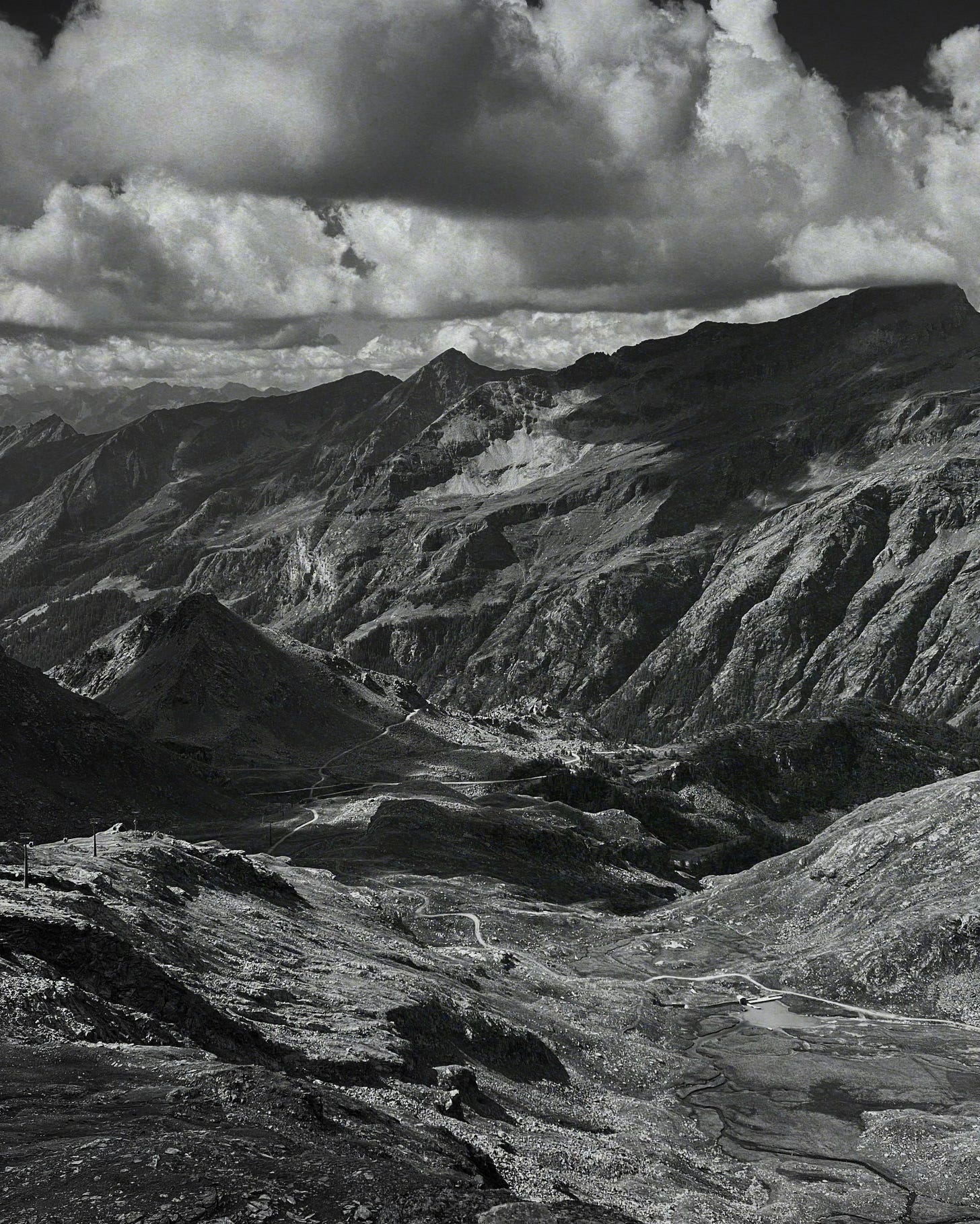Memory as fiction
November's Letter
Memory is never a recording — it’s a fiction we retell to make sense of who we are. In this letter, I explore the psychology of remembering and forgetting: how confabulation, schemas, and narrative identity shape what we believe to be true. From a simple act of getting lost in a familiar city emerges a reflection on how the past is constantly rewritten, each recollection an act of adaptive invention.
And just like that, the aircraft took off as if it were made of feathers. It was a late-night flight, and the darkness thickened as we gained height. Somewhere mid-flight, I looked out of the window, and if it weren’t for the motor’s rumble, I could have sworn we were suspended in the void—motionless between the deepness of the Adriatic below and the expansiveness of the universe above. I scrutinized the blackness, looking for something. I don’t believe we are alone in the universe, so I guess my scrutiny held the repressed excitement of noticing something up there, something we don’t get to see down here.
The next day, I woke up at my parents’ home. The homeland spread behind the apartment’s walls, and I was about to step into a reality I had deserted for more than six years.
The bureaucracy is an entangled mystery, and going from point A to point B means moving from point C to point E, and from there to point B. You need to understand information and also be able to retain and retrieve it from memory.
And I got lost. Somewhere between point E and point B, I predictably got lost. I know the city—I lived, studied, and worked there for years—and yet, I got lost.
I don’t remember the last time I laughed that much. It was raining, I was hungry and thirsty, and my mind ached for coffee. I stood in the rain, between the emaciated river and some kitschy buildings, laughing as if there were no tomorrow. The disorientation was so dazzling that even my own brain interpreted it as a satire.
The city had changed so much that it eluded all my well-rooted mental maps. But as I made my way through the new urban landscape, a pressing thought demanded attention: Waaaaiiit, where do you place that man selling old books? Remember, he had those foldable deckchairs where he displayed rare books from the Yugoslav era. Find his spot now, place him on the new map, so you don’t forget him.
Basically, my brain was preparing to overwrite a new memory, or to underwrite an old one—a remarkable adaptive mechanism, letting old and new coexist.
Interesting, I thought. I’d studied this before, but at the time, I wasn’t sure I fully understood it.
The psychology of invention
As I write this, when I think of that spot, I see two new buildings divided by a narrow street. A couple of seconds later, on the corner, a man sits on a small folding chair in front of an impromptu bookstand. Sometimes, the scene behind him is the old one: an abandoned area and a bridge. Then the new buildings emerge, the bridge partially hidden. I can still tell they are from different eras—his clothes anachronistic against the geometry of the new facades.
Psychologists have a word for the way memory deceives us—confabulation. It sounds clinical, almost cold, but it captures something deeply human: our tendency to fill in gaps, to invent continuity when fragments don’t fit. We don’t mean to lie; we simply need our story to make sense.
Frederic Bartlett, a century ago, spoke about schema theory: remembering is never simple retrieval but a reconstruction guided by the expectations and frameworks of the present. The mind doesn’t store perfect copies of the past—it keeps sketches, outlines, unfinished drafts that it revises each time we recall them. Each act of remembering is an act of invention.
In a way, that’s what my mind was doing—negotiating between two incompatible worlds.
Philosopher Henri Bergson thought of memory as duration—not a static archive, but a living flow between past and present. The self, he said, moves like time does—continuous, never fully divisible. In fact, when I try to recall the bookseller, I’m not going backward. I’m expanding the present to include what it once contained. Memory doesn’t live behind me; it lives through me.
The narrative self
Memory is also a storyteller. Psychologists distinguish between episodic memory—vivid, sensory recollections of individual moments—and autobiographical memory, which threads those episodes into a coherent narrative, a story that makes sense of our lives. In this sense, the self is a living manuscript, constantly edited, revised, and reinterpreted.
The man with the books, the rain, the river—each fragment becomes a scene in a story I am always in the process of writing. My past is not fixed; it’s performed anew each time I recall it, shaped by the person I am now and the person I once was. The narrative self is never simply what happened, but what I need to remember to remain coherent, and to feel continuous.
And perhaps that’s why, even when I stood in the rain, lost in a city I once knew by heart, I didn’t feel despair. I felt wonder. My confusion was not a failure of memory but proof of its creativity. My mind was trying to reconcile two worlds—the one that was and the one that is—and in doing so, it invented a third: a private geography where both coexist, and a new story emerges—part fact, part fiction.
When I finally found my way to my final destination, drenched and exhilarated, I thought about how much we rely on the stability of memory to feel real. Yet the self, as Conway and Pleydell-Pearce wrote, is maintained not through accuracy, but through coherence. We remember not to preserve the past, but to preserve the idea of who we are.
I guess that’s why the memory of the bookseller keeps returning. It’s not him I’m trying to locate, but myself—the one who used to stop by his stand, the one who once belonged to that city. And who knows if the man with the books has ever really existed as I remember him? Maybe he was a composite of strangers, a symbolic guardian of something I needed to preserve.
Related Letter
This letter continues the exploration of themes introduced in previous pieces, where the concept of temporal misalignment intersects with our shifting identities.
November’s Gatherings
If you’re in the mood for good company and a journaling practice from the comfort of your armchair, join us for this month’s Clarity Pages:
Thursday, November 6
10.00 - 11.30 CET
Online
Saturday, November 15
10.00 - 11.30 CET
Online
How to join?
Paid subscription. If you value the intention behind Eirene Cafe and find it nourishing for your well-being, consider supporting it with a paid subscription. This grants you access to the Clarity Pages, and you’ll receive the meeting link the day before the gathering.
Payment per gathering. If a one-time payment suits you better right now, you can choose to pay per gathering. Your subscription to Eirene Café will remain free, and you’ll still receive the meeting link the day before the gathering.
NOTE: If paying isn’t possible right now and you’d benefit from the monthly gatherings, email me at eirene.cafe@gmail.com, and I’ll send the meeting link the day before the gathering —no questions asked.
Community
I’ve set up a WhatsApp community so we can stay connected in an app many of us already use every day. You can choose the space that feels right for you—just quiet updates in the Announcements feed, or to step into the Chat group if you’d like to connect with others.





So interesting how our minds demand cohesion and a need to have a single story rather than various and sometimes conflicting truths. Thank you.
This was incredibly interesting, I loved the emotional aspect as much as the series of concepts you shared. Really liked it!